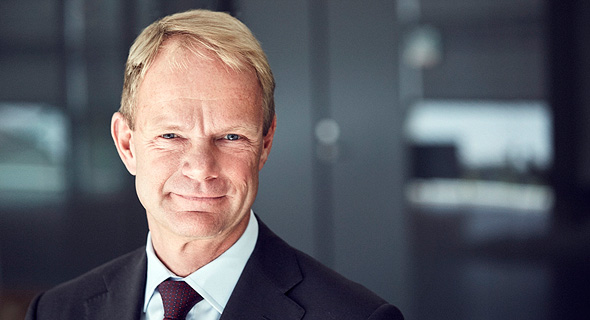Once Future CEO Could have Taken Teva on a Different Path
AstraZeneca CEO Pascal Soriot, which backed out of Teva’s CEO position in July, planned on taking the company towards innovation instead of generic focus
For daily updates, subscribe to our newsletter by clicking here.
Things could have gone in a completely different direction.
In July, Teva’s board offered the role of CEO to Pascal Soriot, the CEO of Anglo-Swedish pharmaceutical company AstraZeneca. Mr. Soriot made several appearances before the board, detailing his vision for the company’s future and recovery. The deal was all but closed, barring an official signing, but fell through following media reports about the negotiations.
 CEO Kåre Schultz. Photo: PR
CEO Kåre Schultz. Photo: PR
AstraZeneca’s shareholders panicked. The company’s stock fell while Teva trended up. AstraZeneca’s board members reportedly offered Mr. Soriot a higher salary, despite previous longstanding criticisms from shareholders against his already steep compensation. Struggling Teva was left with interim CEO Yitzhak Peterburg at the helm.
In an interview with Calcalist at the time, Teva activist investor Benny Landa called the media leak “devastating,” saying Mr. Soriot’s turnabout might prevent Teva from recruiting any candidate deemed worthy of the position.
“It’s hard enough to bring in a good chief executive after previous chiefs were summarily dismissed,” Mr. Landa said, before hinting at the strategy the French-born CEO planned on implementing. “Mr. Soriot was the perfect choice for Teva, seeing that the company has reached a point at which it should ditch generics and adopt innovative drug development. Generics are dying out, and profitability is wearing away globally.”
Mr. Schultz’s strategy, outlined late November, takes the company in the opposite direction—back to generic focus while severely limiting its innovative operations. Under Mr. Schultz Teva’s generic and specialty drug businesses are now combined, cutting several top positions like that of Teva’s chief scientific officer Michael Hayden and putting Hafrun Fridriksdottir at the head of the company’s global research and development operations.
According to the specific details of the company’s current cost-cutting plans, published by Calcalist Wednesday, Teva intends to cease all pre-clinical trials at the company’s Israeli research and development center, essentially signaling its 350 employees will all be let go in the upcoming months. The company is also intending to close or sell most of its manufacturing business in Israel, including its active pharmaceutical ingredients assets.
Signed in September, Mr. Schultz stepped in as CEO on November 1. As part of his five-year contract, he will receive an annual salary of $2 million, $6 million in annual equity incentives, a signing bonus of $13.5 million in Teva shares and options, and $20 million in cash. He is also entitled to performance-based annual bonuses of up to 200% of his salary.
- Israeli Union Leader Calls for General Strike on Expected Teva Cutback Reports
- Teva to Cut Around Half of Israeli Workforce, Outsource Operations
- Soriot's Teva Appointment Unlikely, Says Company Board Member
The compensation package drew wide criticism, including from Israeli Labor party lawmaker Shelly Yachimovich, who said Mr. Schultz received a $1.5 million Jaguar luxury car as part of his position in a statement Wednesday. “It's a bold symbol of the company’s management’s warped outlook. The company is ditching its employees, while at the time padding its senior executives with outrageous compensation and perks,” the Israeli parliamentarian said.
A Teva spokeswoman said Mr. Schultz uses the Lexus previously used by the company’s former CEO. The Jaguar used by Mr. Schultz was supplied by a car rental company as a substitute car for one day only, she said.



